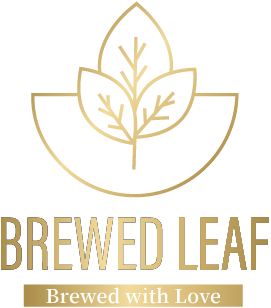Brewing Guide
Tea Brewing Guide
Selecting Good Tea Requires Good Care
Good tea is affordable but not cheap. Tea is an affordable luxury but choosing good tea needs some care. Tea made by the orthodox method retains the sophistication that the natural soil, and climatic factors induce.
Protecting tea
Tea is not any different in requiring care in its storage. Tea absorbs moisture, and similarly odours or fragrance. Tea requires to be protected in an airtight container, and kept faraway from moisture, heat, light and odours. It is stored in a cool and dry place, not warmer than 30°C. For medium term storage, stocks of tea are kept in an airtight foil pouch or ceramic container within the refrigerator.
Importance of Good Water
A cup of tea contains 99% water and good water is important for a decent brew just as the tea. Water that is full of minerals, especially calcium, or magnesium, or the water that is chlorinated, briny, or the desalinated seawater, or the water that is boiled several times, isn't adequate for brewing tea. Tea is delicate. A contaminant like chlorine, or a poorly washed teapot can affect your enjoyment of fine tea. Ideally, good water means spring water but in absence of a spring, the water from reservoirs can be used.The water that has been boiled multiple times isn't good for brewing tea because it can deplete dissolved gases and concentrate nitrates, fluoride, and other undesirable elements, and for tea that's especially bad in a very professional environment use a samovar with an honest thermostat to reduce reboiling, whilst reception, use a kettle and H2O anytime.
Brewing Tea
Brewing is the extraction of the goodness that is induced within the tea leaves. Using the proper amount of tea for the amount of tea you want to brew is critical, as is the method of brewing. There are several ways of brewing tea from varying sizes of teapot, to ratios of tea to water, to traditions. Use 2.5g of tea per 220ml water with a clean and dry teaspoon, place the two in a clean, odour free and pre-heated teapot. Pre heat the teapot and the cups by swirling it a little in them and pouring it out before brewing. Pour the freshly, once boiled water onto the tea leaves. Further, pour the tea into the cups. Poor preparation is that the most typical explanation for tea that fails to please.
Why Tea might be too light?
There might be reasons for it. You have poured an excessive amount of water or lesser amount of tea. It is important to estimate the quantity of water against the amount of tea. For a Normal Brew, use 2.5g of tea or one tea bag for 200 ml water and brew the tea for 3 minutes. This is often the essential tea strength guide.
Why Tea might be too strong?
There might be reasons for it. You have poured less water or an excessive amount of tea. It is important to estimate the quantity of water against the amount of tea. If you need your tea strong - use 2.5g of tea or one teabag for 200 ml water and brew the tea for five minutes only.
Important Brewing Guide
Green tea encompasses a softer, generally more subtle personality than tea and may be brewed in water that is cooled to around 75°, whilst Oolong in water that is around 85° and tea leaf in water with a temperature of 90-95°. Light and floral high grown black teas also enjoy lower temperature brewing and is suitable to be brewed at 85°.
White Tea
- Loose leaf/ Tea Bag -2 - 2.5g (01 standard tea spoon) = 1 Tea bag
- Water -220ml
- Water Temperature -100°C
- Brewing -70-80°C
- Brewing Time -2-3 Minutes
GREEN TEA
- Loose leaf/ Tea Bag -2 - 2.5g (01 standard tea spoon) = 1 Tea bag
- Water -220ml
- Water Temperature -100°C
- Brewing -70-80°C
- Brewing Time -2-3 Minutes
OOLONG TEA
- Loose leaf/ Tea Bag -2 - 2.5g (01 standard tea spoon) = 1 Tea bag
- Water -220ml
- Water Temperature -100°C
- Brewing -80-90°C
- Brewing Time -2-3 Minutes
BLACK TEA
- Loose leaf/ Tea Bag -2 - 2.5g (01 standard tea spoon) = 1 Tea bag
- Water -220ml
- Water Temperature -100 c
- Brewing -95-100 c
- Brewing Time -3-5 Minutes (3 mins Normal brew, 5 mins for strong brew)
Stirring
Once the tea and freshly boiled water are combined, the leaves tend to settle at the underside of the teapot, reducing the contact between the tea leaves and water. Stir to agitate the tea and permit proper extraction. Tea should be brewed for 3 minutes, stirring on adding water, again a moment later and eventually before serving. Oolong and tea leaf might be brewed for two minutes.
Right Temperature to Consume
Once brewing is complete, the tea should be poured into warm teacups and any tea remaining within the teapot decanted to avoid over-brewing. Tea that's over brewed can develop bitterness. The simplest temperature at which hot tea should be drunk is around 65°C, although it might vary. Tea must not be consumed when too hot and therefore the best temperature is best determined by what is most comfortable for you.
Enhancement
Milk should only be added to a powerful brewed tea leaf. Use warm milk only as cold milk will rapidly quiet down the tea. Other enhancements like Honey, Mint leaves, Cinnamon, Wedge of Lime, etc. can too be added by your preference. Tea should withstand the enhancements without compromising the taste.

